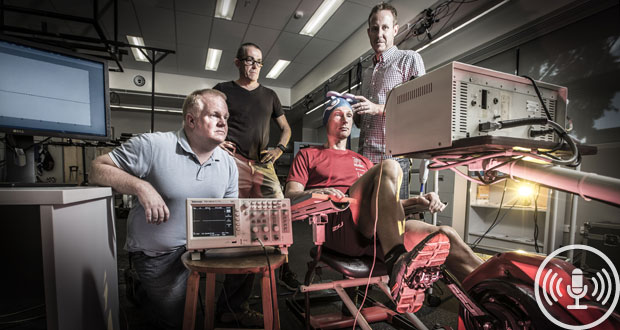Brain stimulation boosts benefits of exercise: study

Brain stimulation during exercise might look like something straight out of science fiction but the combination could one day be used to help older Australians and people who have had a stroke, new research suggests.
Researchers from the University of Wollongong (UOW) measured the benefits of eccentric cycling, which involves resisting the reverse motion of pedals powered by electrical motors, both with and without brain stimulation.
The team found the combination of the exercise and brain stimulation not only improves muscle strength and cardiovascular function above that provided by exercise alone, but also improves brain function.
The team said the technology could one day be used to assist the elderly improve neuronal function and reduce the incidence of falls, and help people who have had a stroke recover body movement.
Nursing Review sat down with UOW researcher Dr Darryl McAndrew to find out more about brain stimulation and its potential applications.
Email: [email protected]





